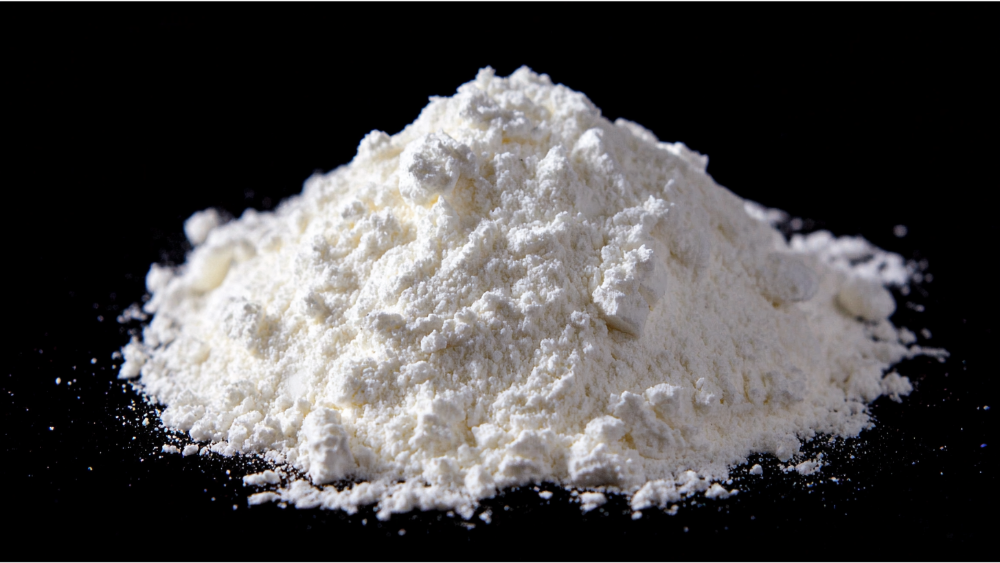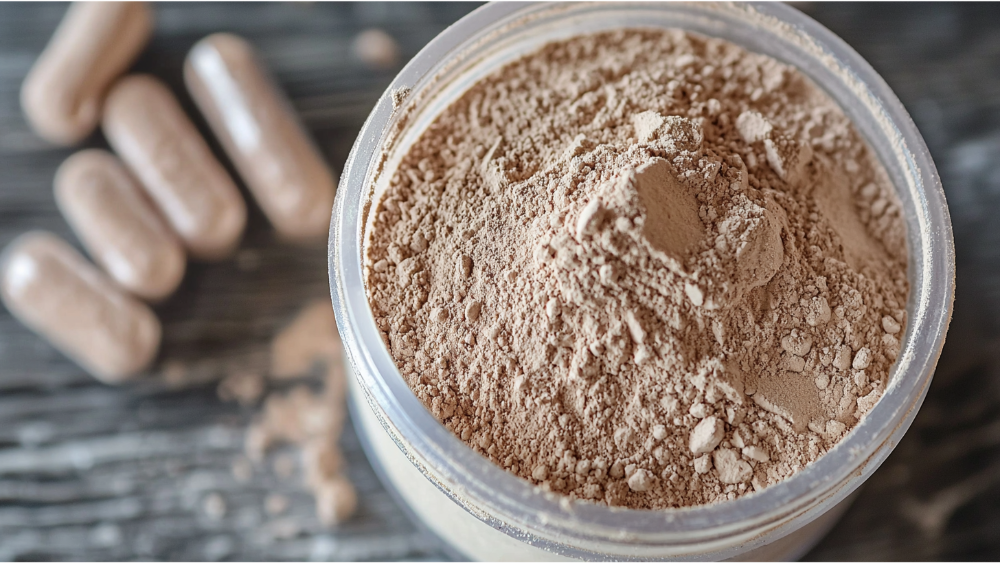Taurine is a sulfur-containing amino acid that plays a critical role in various bodily functions. Unlike other amino acids, taurine is not used to build proteins. Instead, it is classified as a conditionally essential amino acid, which means the body produces it in small amounts, but under certain conditions, supplementation or dietary intake may be necessary to meet your body’s needs.
What Makes Taurine Unique?
Taurine’s uniqueness stems from its wide range of physiological roles, including its involvement in cardiovascular function, bile salt formation, eye health, and neurological development. Unlike most amino acids, taurine is found abundantly in the tissues of many organs such as the heart, brain, eyes, and muscles.
Taurine’s Discovery and Origins
First isolated in 1827 from ox bile (hence its name, derived from the Latin “taurus” for bull or ox), taurine has since been the subject of numerous studies for its beneficial effects on human health. Despite its association with energy drinks, taurine is a naturally occurring amino acid with far-reaching benefits beyond just boosting energy.
Importance of Taurine in the Body
Taurine is essential for several critical bodily processes. For example, it helps regulate the balance of electrolytes in cells, supports the development of the nervous system, and stabilizes cell membranes. Deficiency in taurine can lead to several health issues, including vision problems, muscle weakness, and heart complications.
The Functions of Taurine

Taurine and Cardiovascular Health
Blood Pressure Regulation
Taurine helps regulate blood pressure by balancing electrolyte levels in the body, particularly calcium and potassium. Studies suggest that taurine supplementation can help lower blood pressure by improving vasodilation (the widening of blood vessels), which allows for better blood flow.
Heart Function and Protection
Taurine also plays a role in protecting the heart by reducing oxidative stress and improving the efficiency of heart muscle contractions. Research has shown that taurine can reduce the risk of heart disease, potentially improving the survival rates of those with heart failure.
Taurine in Neurological Functions
Cognitive Support
Taurine is a key neurotransmitter in the brain, where it helps regulate the activity of other neurotransmitters like gamma-aminobutyric acid (GABA). Studies suggest that taurine has neuroprotective effects and could support cognitive functions, such as memory and learning, particularly in aging populations.
Stress Response and Sleep
Taurine has a calming effect on the brain, aiding in reducing anxiety and promoting better sleep. It modulates GABA activity, which is crucial for controlling the nervous system’s stress response. This can make taurine particularly helpful for individuals struggling with insomnia or stress-related sleep disorders.
Muscle Health and Performance
Role in Muscle Contraction
Taurine is essential for regulating calcium levels in muscle cells, which is necessary for proper muscle contraction. It helps improve muscle performance by ensuring that calcium ions are available when needed for muscle contractions during physical activities.
Effects on Exercise Endurance
Several studies have demonstrated that taurine supplementation can enhance exercise endurance by reducing muscle fatigue. Athletes often take taurine to improve their performance, as it helps increase fat burning and protect against muscle damage during intense exercise.
Taurine’s Role in Eye Health
Retina Development and Protection
Taurine is found in high concentrations in the retina, where it plays a critical role in protecting the eyes from oxidative damage. Research suggests that taurine deficiency can lead to retinal degeneration and loss of vision, highlighting its importance in maintaining eye health.
Potential in Preventing Vision Loss
By acting as an antioxidant, taurine helps protect the eyes from harmful free radicals and oxidative stress. This makes it a potential candidate for preventing conditions like age-related macular degeneration, a leading cause of vision loss in older adults.
Dietary Sources of Taurine
Natural Sources of Taurine
Meat and Seafood
Taurine is primarily found in animal-based foods. Meats such as beef, chicken, and pork are rich in taurine, while seafood, particularly shellfish like clams and shrimp, contains even higher concentrations. For individuals who consume a diet rich in meat and seafood, dietary taurine intake is usually sufficient.
Dairy Products
While taurine levels in dairy products are lower than in meats, it can still be found in milk and other dairy products. Infants often receive taurine from breast milk or taurine-enriched formulas.
Taurine in Plant-Based Diets
Taurine is virtually absent in plant-based foods, which can lead to lower taurine levels in vegetarians and vegans. Fortunately, the body can synthesize taurine from other sulfur-containing amino acids like cysteine, but supplementation might be necessary in certain cases.
Synthetic Taurine in Supplements
Synthetic vs. Natural Taurine
Many taurine supplements are synthesized from plant-based amino acids, making them suitable for vegans and vegetarians. The synthetic form is bioidentical to naturally occurring taurine, providing the same health benefits.
Common Forms of Taurine Supplements
Taurine is available in various forms, including powders and capsules.
Health Benefits of Taurine

Cardiovascular Benefits
Lowering Cholesterol and Triglycerides
This makes taurine an important amino acid for cardiovascular health.
Preventing Heart Disease
In addition to lowering cholesterol, taurine’s antioxidant properties help reduce oxidative stress in the heart, protecting it from long-term damage and reducing the risk of heart disease.
Athletic Performance and Muscle Recovery
Taurine as a Performance Enhancer
Taurine has become a popular supplement among athletes due to its potential to improve exercise performance. Studies show that taurine helps increase endurance, reduce muscle fatigue, and protect against exercise-induced damage.
Reducing Muscle Soreness and Damage
By reducing oxidative stress and inflammation in muscles, taurine helps athletes recover more quickly after intense workouts. It also supports the body in managing muscle soreness.
Cognitive and Neurological Health
Enhancing Mental Focus
Taurine’s ability to regulate neurotransmitters has led to its inclusion in many energy drinks, marketed for boosting mental focus and alertness. However, its exact impact is hard to isolate due to the presence of caffeine in many of these beverages.
Potential in Treating Neurological Disorders
Emerging research suggests that taurine could have therapeutic potential for treating neurological disorders such as Alzheimer’s and Parkinson’s diseases due to its neuroprotective and antioxidant effects.
Taurine Supplementation

Who Should Consider Taurine Supplements?
Individuals with Heart Conditions
Those at risk for cardiovascular diseases or dealing with heart failure may benefit from taurine supplementation under the guidance of a healthcare provider. Studies suggest taurine can improve heart function and reduce mortality rates.
Athletes and Fitness Enthusiasts
Taurine supplements can be particularly beneficial for athletes looking to enhance their endurance, performance, and recovery. It’s a common ingredient in pre-workout formulas due to its ability to reduce fatigue and support muscle function.
Vegans and Vegetarians
As taurine is not found in plant-based foods, vegans and vegetarians may need to consider supplementation to avoid potential deficiencies, especially if their diet lacks other sulfur-containing amino acids like cysteine.
Recommended Dosages of Taurine
Safe Dosage Range
Taurine supplements are typically safe when taken in doses ranging from 500 mg to 3,000 mg daily. Higher doses, up to 6,000 mg, have been used in clinical studies without significant side effects, but it’s always best to consult a healthcare provider before starting a new supplement.
When to Avoid Taurine Supplements
Individuals on certain medications, such as blood pressure or antidepressants, should avoid taurine supplements unless advised by a doctor. Taurine can interact with these medications and may exacerbate certain conditions.
Potential Side Effects of Taurine
Side Effects from Excessive Taurine
Gastrointestinal Issues
In some cases, excessive taurine intake may lead to gastrointestinal discomfort, such as nausea, diarrhea, or stomach pain. This is why it’s important to adhere to recommended dosages.
Interactions with Medications
Taurine may interact with several medications, including blood pressure medications, antidepressants, and anti-seizure drugs. These interactions can potentially cause adverse effects, so it’s important to consult a healthcare provider if you are taking any of these medications.
Taurine in Energy Drinks: Safety Concerns

High Caffeine and Taurine Combo
While taurine itself is considered safe, combining it with high levels of caffeine and sugar in energy drinks can lead to increased heart rate, nervousness, and dehydration. It’s particularly concerning for younger individuals and those with heart conditions.
Effects on Children and Adolescents
The American Academy of Pediatrics advises against energy drink consumption in children and adolescents due to the risks posed by caffeine and sugar. While taurine might have is not yet fully understood, combining it with high caffeine and sugar in energy drinks poses risks, especially for younger individuals. The combination can lead to rapid heart rate, anxiety, and sleep disturbances, raising concerns for long-term use among teens.
Conclusion
Taurine is a versatile amino acid with far-reaching health benefits, from supporting heart health to enhancing physical performance. Though naturally occurring in animal-based foods, taurine supplementation may benefit those with dietary restrictions, athletes, or individuals at risk for cardiovascular disease. However, it’s important to use taurine supplements responsibly, especially when combined with medications or energy drinks, to avoid potential side effects. Always consult with a healthcare professional to determine if taurine supplementation is right for you.
By understanding taurine’s role in the body and its potential benefits, you can make informed decisions about whether it deserves a place in your diet or supplement regimen.

Leave a Reply